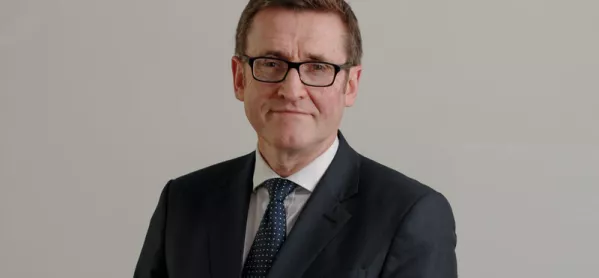Ofsted desperately needs more powers to search and seize evidence to help close down illegal schools, its national director of education has warned.
Sean Harford said inspectors are trying to carry out criminal investigations “with one hand tied behind their back” when visiting suspected unregistered schools.
He also called on the government to close loopholes which lead some people to run unregistered operations and claim they are not running a school.
His comments follow the first ever successful prosecution of an unregistered school last week. The school was found to be teaching more than 50 children from an office block in London.
In the past two and half years, Ofsted has identified 420 suspected unregistered schools, visited 274 of these and issued 63 warning notices.
Since January 2016, 56 have closed or stopped operating illegally, Mr Harford said.
Unregistered schools ‘prey on vulnerable’
He warned that unregistered schools can “prey on vulnerable families to make money” and can be unsafe with poor facilities and hygiene. They can also have badly trained or untrained staff who may not have had any employment checks, he said.
“Perhaps the most dangerous are teaching children things that no child should learn,” he added.
Mr Harford said Ofsted needed more powers when investigating cases of “schools in the shadows”.
He said: “Rather than the structured inspection of achievement, behaviour and leadership, we are looking for evidence that can be put before a court. So, just like the police, we are carrying out a criminal investigation.”
He added: “That means that evidence must be photographed, suspects interviewed and the proper procedures followed. Our evidence must meet the standard expected by a criminal court. We are hamstrung by the fact that, currently, we cannot search for evidence, or seize evidence that we may see.”
Mr Harford said Ofsted welcomed the government’s commitment to review the inspectorate’s powers in a recent Green Paper on its communities strategy.
The Department for Education has been approached for a comment.
Headteacher Beatrix Bernhardt and director Nacerdine Talbi were last week convicted of operating the Al-Istiqamah Learning Centre in Southall, West London.
Oftsed inspectors who visited late last year found more than 50 children, aged between 5 and 11, were being educated at the centre, housed inside an office block.
The centre’s operators had argued that it was only providing part-time schooling of less than 18 hours a week, and therefore did not need to register as a school.
But, after seeing photographs of lesson plans and homework diaries during a three-day trial, Westminster magistrates ruled that the establishment was offering full-time education.
In order to be classed as a school there needs to be at least five children of compulsory school age attending and it needs to be based in a building. It must also be offering “all or substantially all of a child’s education.”
The DfE has issued guidance saving that 18 hours or more constitutes a full-time education. However, Mr Harford said this had led some providers to offer 17 hours and 55 minutes in a bid to avoid scrutiny.
He said the government needed to establish legal definitions for what constitutes full-time education, schools and appropriate education.
“These loopholes in the law are simply adding confusion and enabling people to set up schools that are not serving children well,” he added.





